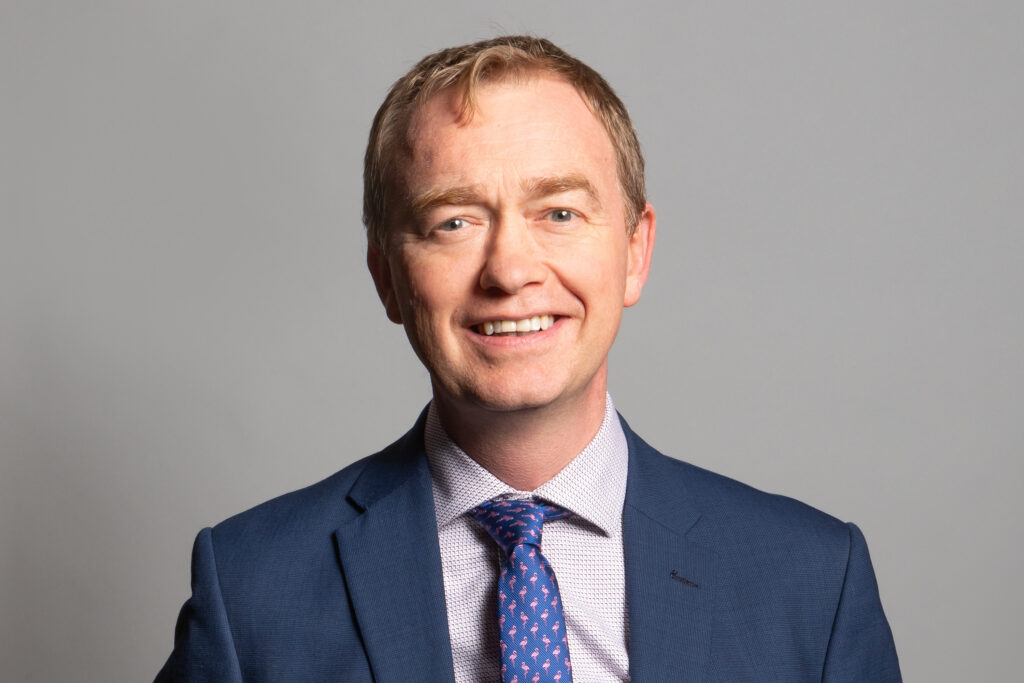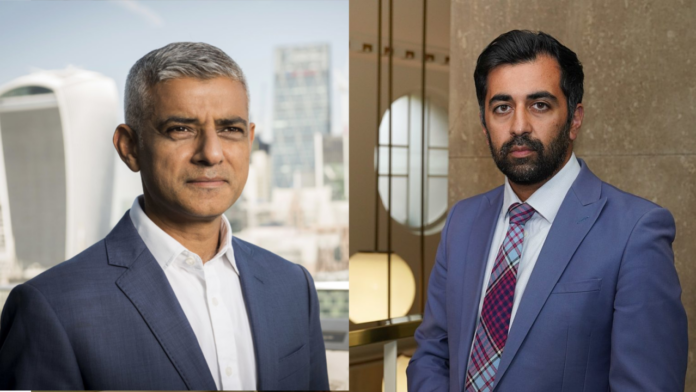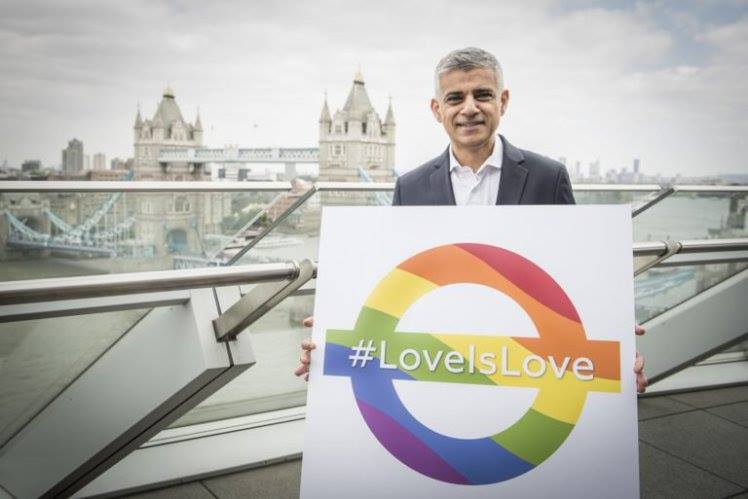Academic Tallha Abdulrazaq says that the elections of Humza Yousaf and Sadiq Khan prove that ethnicity is no longer a hindrance to top office in the UK, but being a believing and practising Muslim definitely still is.
If one were to cast their gaze over the characters who populate the British political landscape, they would assume that the country has come a long way since its days of Empire when it had colonised the Indian subcontinent and other territories across the Muslim world.
To be frank, that assumption in many ways would be correct.
Prime Minister Rishi Sunak is of Indian Hindu heritage. The Mayor of London is Sadiq Khan, of Pakistani Muslim descent. Now, Humza Yousaf, descended from Punjabi Muslims, has won the Scottish National Party’s leadership race and has taken office as First Minister of Scotland.
Considering Britain’s imperial history, this is of course somewhat remarkable.
Several high political offices are now dominated by the descendants of very same people the British Empire subjugated less than a century ago, and this is an indication that the United Kingdom is, to some extent, attempting to embrace a future where the definition of who is or is not “British” is not solely based on race or ethnicity.
But there is always a limit to tolerance, and that limit appears to be one that heavily scrutinises the religious heritage of one who seeks to enter political life, even if as a campaigner.
Subscribe to our newsletter and stay updated on the latest news and updates from around the Muslim world!
I can never forget when, at the height of ISIS mania as the group swept through Iraq and Syria in 2014, British Muslim human rights advocate Asim Qureshi was subjected to an Islamophobic line of questioning on national television to find out whether or not he supported Daesh, simply because he was a Muslim.
Bizarrely, the interviewer, Matt Frei, thought it would be an appropriate line of questioning because Qureshi said he supported humanitarian intervention and not military intervention in the Middle East.
While Qureshi handled himself with admirable panache, that was not the only example of Muslims being berated simply for being Muslim, ever a cloud of suspicion hanging over their heads.
During the 2016 London mayoral race, the Conservative candidate, Zac Goldsmith, attempted to smear the ultimate winner and Labour candidate, the aforementioned Sadiq Khan, as an “extremist.”
Once again, the securitisation of Muslims and Muslimness reared its ugly head, simply because of Khan’s religious background.
But I’m not that Muslim!
This intense level of scrutiny has had a few interesting results when examining Muslim engagement in British politics. Whenever a Muslim runs for public office, they will now almost invariably attempt to jump through as many hoops as possible just to show their would-be constituents just how “not-so-Muslim” they really are.
Take Khan, for example. When speaking to Iran’s state-sponsored Press TV outlet in 2009, he accused some in government of ignoring regular British Muslims in favour of speaking to organisations and leaders that he characterised as being “Uncle Toms” for showing subservience to the power structures in British society that dictate what you can and cannot be.
Effectively, Khan was attacking those who felt too afraid to speak out about their beliefs or those who showed sickening levels of obsequiousness to the authorities as they threw their own under the bus.
Naturally, and fast-forward a few years when he urgently needed political support to get into office, Khan needed to make a grand statement to reject his Muslimness to garner votes. His solution? Well, and despite the unambiguously sinful nature of homosexuality in Islam across its sectarian divide, he became the first mayoral candidate in 2015 to sign the so-called “Pride in London” pledge for the LGBT community.
Since then, he has made grand and public displays cavorting and frolicking upon giant rainbow flags in the middle of London and holding up placards with common slogans used by LGBT activists.
Fear and loathing
Scotland’s Yousaf was himself not immune to this. During the SNP’s leadership race, he was repeatedly cornered on his views about the gay community, with former First Minister Alex Salmond accusing him of intentionally scheduling a timetable clash so that he could avoid voting on gay marriage “due to religious pressure.”
A month ago, he was cornered by Sky News’ Sophy Ridge, who asked him, point-blank: “Do you believe gay sex is a sin?” to which Yousaf responded with an emphatic “no.” He could have simply stuck to his original talking point about not using his religion as the basis for legislating in secular Scotland. Instead, he kowtowed under the relentless scrutiny of the system, and tucked his Muslimness away, perhaps for another day.
This is in stark contrast to Christian politician Tim Farron, who resigned as leader of the Liberal Democrats in 2017 because he did not know how to reconcile his Christian values with being a political leader, saying: “I have found myself torn between living as a faithful Christian and serving as a political leader.” This came from a man who supported gay marriage, but could not bring himself to say that it was not sinful according to his Christian beliefs.

This is not at all to say that Muslims ought to expect a country like the UK to be run under Shari’ah law or anything of the sort. According to the 2021 census, Muslims make up a small minority of the overall population, some 6.5 percent. Their relative size aside, they are often from disadvantaged communities, and are further subdivided along ethno-sectarian lines, making it almost impossible to get that 6.5 percent to agree on anything.
But isn’t the entire point of a democracy to represent a plurality of voices, ideas and beliefs? Isn’t it wrong that Muslims are so scared of expressing their Muslimness for fear that they will be ostracised or be denied employment? So long as it is peaceful and “worthy of respect” in a democratic society – as women’s rights activist Maya Forstater achieved when she challenged in court her loss of employment after she wrote “men cannot change into women” – then why is this sort of engagement discouraged?
And, as Farron showed us, this not only affects Muslims, but other people who hold conservative values and religious beliefs, including Christians and Jews.
The truth, however, is that while democratic and liberal ideology may promote one thing, reality often has the final say. And, in today’s climate, that say is effectively to shut out true Muslim representation as vast swathes of the British Muslim community will not feel represented by the likes of Khan or Yousaf, who are welcomed to give the illusion of diversity in modern Britain because they are Muslim – just not too Muslim.
Tallha Abdulrazaq is a British-Iraqi academic, holding a PhD in Strategy and Security from the University of Exeter. He has also worked as a consultant and analyst for a number of private businesses, and is a frequent contributor for both international print and broadcast media outlets on Middle Eastern politics and security issues.
























